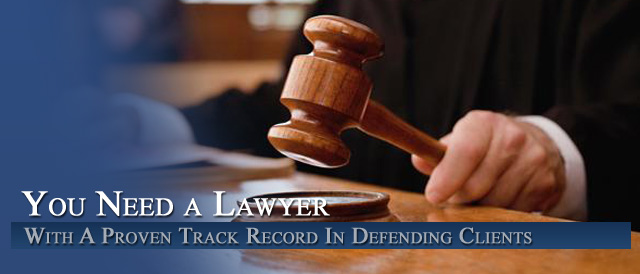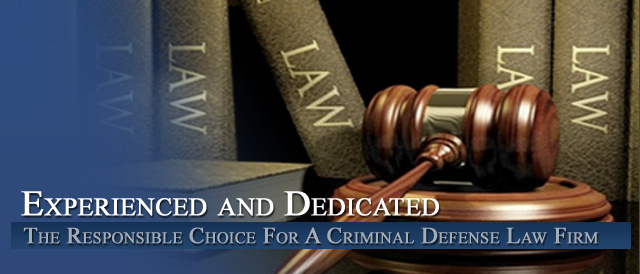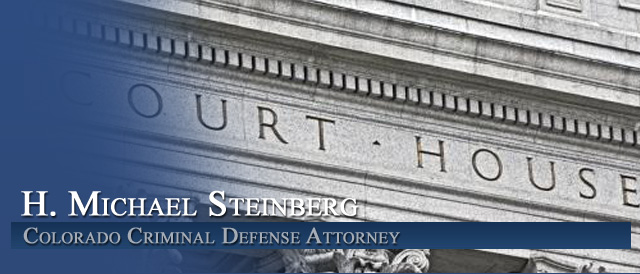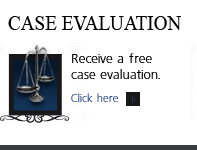




035. COLORADO CRIMINAL CODE – COLORADO ORGANIZED CRIME CONTROL ACT
Colorado Organized Crime Control Act
Colorado Racketeering activities
It is a class 2 felony to knowingly invest proceeds from a pattern of racketeering activity (as defined in section 18-17-103 (5)) or collection of an unlawful debt in real property or any enterprise, to participate in racketeering activities, or to conspire to participate in racketeering activities. 18-17-105 (1)
18-17-103. Definitions.
As used in this article, unless the context otherwise requires:
(1) “Documentary material” means any book, paper, document, writing, drawing, graph, chart, photograph, phonorecord, magnetic tape, computer printout, other data compilation from which information can be obtained or from which information can be translated into usable form, or other functionally similar tangible item.
(2) “Enterprise” means any individual, sole proprietorship, partnership, corporation, trust, or other legal entity or any chartered union, association, or group of individuals, associated in fact although not a legal entity, and shall include illicit as well as licit enterprises and governmental as well as other entities.
(3) “Pattern of racketeering activity” means engaging in at least two acts of racketeering activity which are related to the conduct of the enterprise, if at least one of such acts occurred in this state after July 1, 1981, and if the last of such acts occurred within ten years (excluding any period of imprisonment) after a prior act of racketeering activity.
(4) “Person” means any individual or entity holding or capable of holding a legal or beneficial interest in property.
(5) “Racketeering activity” means to commit, to attempt to commit, to conspire to commit, or to solicit, coerce, or intimidate another person to commit:
(a) Any conduct defined as “racketeering activity” under 18 U.S.C. 1961 (1) (A), (1) (B), (1) (C), and (1) (D); or
(b) Any violation of the following provisions of the Colorado statutes or any criminal act committed in any jurisdiction of the United States which, if committed in this state, would be a crime under the following provisions of the Colorado statutes:
(I) Offenses against the person, as defined in sections 18-3-102 (first degree murder), 18-3-103 (second degree murder), 18-3-104 (manslaughter), 18-3-202 (first degree assault), 18-3-203 (second degree assault), 18-3-204 (third degree assault), 18-3-206 (menacing), 18-3-207 (criminal extortion), 18-3-301 (first degree kidnapping), 18-3-302 (second degree kidnapping), 18-3-501 (trafficking in adults), 18-3-502 (trafficking in children), and 18-3-503 (coercion of involuntary servitude);
(II) Offenses against property, as defined in sections 18-4-102 (first degree arson), 18-4-103 (second degree arson), 18-4-104 (third degree arson), 18-4-105 (fourth degree arson), 18-4-202 (first degree burglary), 18-4-203 (second degree burglary), 18-4-301 (robbery), 18-4-302 (aggravated robbery), 18-4-303 (aggravated robbery of controlled substances), 18-4-401 (theft), 18-4-402 (theft of rental property), 18-4-409 (aggravated motor vehicle theft), 18-4-410 (theft by receiving), and 18-4-501 (criminal mischief);
(III) Offenses involving computer crime, as defined in article 5.5 of this title;
(IV) Offenses involving fraud, as defined in sections 18-5-102 (forgery), 18-5-104 (second degree forgery), 18-5-105 (criminal possession of forged instrument), 18-5-109 (criminal possession of forgery devices), 18-5-110.5 (trademark counterfeiting), 6-16-111, C.R.S., (felony charitable fraud), 18-5-206 (defrauding a secured creditor or debtor), 18- 5-309 (money laundering), 18-5-403 (bribery in sports), 18-5-113 (criminal impersonation), 18-5-114 (offering a false document for recording), 18-5-702 (unauthorized use of a financial transaction device), 18-5-705 (criminal possession or sale of a blank financial transaction device), 18-5-706 (criminal possession of forgery devices), 18-5-707 (unlawful manufacture of a financial transaction device), 18-5-902 (identity theft), 18-5-903 (criminal possession of a financial device), 18-5-903.5 (criminal possession of an identification document), 18-5-904 (gathering identity information by deception), and 18-5-905 (possession of identity theft tools);
(V) Offenses involving the family relation, as defined in section 18-6-403 (sexual exploitation of children);
(VI) Offenses relating to morals, as defined in sections 18-7-102 (wholesale promotion of obscenity or promotion of obscenity), 18-7-203 (pandering), 18-7-206 (pimping), 18-7-402 (soliciting for child prostitution), 18-7-403 (pandering of a child), 18-7-404 (keeping a place of child prostitution), and 18-7-405 (pimping of a child);
(VII) Offenses involving governmental operations, as defined in sections 18-8-302 (bribery), 18-8-303 (compensation for past official behavior), 18-8-306 (attempt to influence a public servant), 18-8-402 (misuse of official information), 18-8-502 (first degree perjury), 18-8-503 (second degree perjury), 18-8-603 (bribe-receiving by a witness), 18-8-606 (bribing a juror), 18-8-608 (intimidating a juror), 18-8-609 (jury-tampering), 18-8-610 (tampering with physical evidence), 18-8-703 (bribing a witness or victim), 18-8-704 (intimidating a witness or victim), and 18-8-707 (tampering with a witness or victim);
(VIII) Offenses against public peace, order, and decency, as defined in sections 18-9-303 (prohibited wiretapping) and 18-9-304 (prohibited eavesdr
(IX) Gambling, as defined in sections 18-10-103 (2) (professional gambling), 18-10-105 (possession of a gambling device or record), 18-10-106 (transmission of receipt of gambling information), and 18-10-107 (maintaining gambling premises)
(X) Offenses relating to firearms and weapons, as defined in sections 18-12-102 (possessing an illegal weapon or a dangerous weapon), 18-12-107.5 (illegal discharge of a firearm), and 18-12-109 (possession, use, or removal of explosives or incendiary devices or the possession of components thereof);
18-17-104. Prohibited activities.
(1) (a) It is unlawful for any person who knowingly has received any proceeds derived, directly or indirectly, from a pattern of racketeering activity or through the collection of an unlawful debt to use or invest, whether directly or indirectly, any part of such proceeds or the proceeds derived from the investment or use thereof in the acquisition of any title to, or any right, interest, or equity in, real property or in the establishment or operation of any enterprise.
(b) A purchase of securities on the open market for purposes of investment, and without the intention of controlling or participating in the control of the issuer, or of assisting another to do so, shall not be unlawful under this subsection (1) if the securities of the issuer held by the purchaser, the members of his immediate family, and his or their accomplices in any pattern of racketeering activity or the collection of an unlawful debt after such purchase do not amount in the aggregate to one percent of the outstanding securities of any one class and do not confer, either in law or in fact, the power to elect one or more directors of the issuer.
(2) It is unlawful for any person, through a pattern of racketeering activity or through the collection of an unlawful debt, to knowingly acquire or maintain, directly or indirectly, any interest in or control of any enterprise or real property.
(3) It is unlawful for any person employed by, or associated with, any enterprise to knowingly conduct or participate, directly or indirectly, in such enterprise through a pattern of racketeering activity or the collection of an unlawful debt.
(4) It is unlawful for any person to conspire or endeavor to violate any of the provisions of subsection (1), (2), or (3) of this section.
18-17-105. Criminal penalties.
(1) Any person convicted of engaging in activity in violation of the provisions of section 18-17-104 commits a class 2 felony and, upon conviction thereof, shall, in addition to the penalty provided for in section 18-1.3-401:
(a) Be fined not more than twenty-five thousand dollars; and
(b) Forfeit to the state any interest, including proceeds, he has acquired or maintained in violation of section 18-17-104 and any interest in, security of, claim against, or property or contractual right of any kind affording a source of influence over any enterprise which has established, operated, controlled, conducted, or participated in the conduct of in violation of section 18-17-104.
(2) In lieu of the fine authorized by paragraph (a) of subsection (1) of this section, any person convicted of engaging in conduct in violation of the provisions of section 18-17-104, through which he derived pecuniary value, or by which he caused personal injury or property damage or other loss, may be sentenced to pay a fine that does not exceed three times the gross value gained or three times the gross loss caused, whichever is the greater, plus court costs and the costs of investigation and prosecution, reasonably incurred.
(3) The court shall hold a hearing to determine the amount of the fine authorized by subsection (2) of this section.
(4) For the purposes of subsection (2) of this section, “pecuniary value” means:
(a) Anything of value in the form of money, a negotiable instrument, or a commercial interest or anything else, the primary significance of which is economic advantage; or
(b) Any other property or service that has a value in excess of one hundred dollars.
(5) In any action brought under this section, the district court may, at any time, enter such injunctions, prohibitions, or restraining orders, or take such actions, including the acceptance of satisfactory performance bonds, in connection with any property or other interest subject to forfeiture under this section, as the court may deem proper.
(6) Upon conviction of a person under this section, the district court shall authorize the district attorney or the attorney general to seize all property or other interest declared forfeited under this section upon such terms and conditions as the court shall deem proper. The state shall dispose of all property or other interest seized under this section as soon as feasible, making due provision for the rights of innocent persons. If a property right or other interest is not exercisable or transferable for value by the state, it shall expire and shall not revert to the convicted person. The disposition of seized property shall be as follows:
(a) Any personal property which is required by law to be destroyed, or the possession of which is illegal, or which, in the opinion of the court is not properly the subject of a sale may be destroyed pursuant to a warrant for the destruction of personal property, issued by the district court, directed to the sheriff, and returned by the sheriff upon execution thereof. The district court shall stay the execution of any such warrant during the period in which the property is used as evidence in any pending criminal or civil proceeding.
(b) Any personal property seized and forfeited under the provisions of this section shall be sold by the sheriff in the manner provided for sales on execution. In lieu of ordering the sale of such property, the court may, if it finds that it can be used by a law enforcement agency, order it delivered to a law enforcement agency for such use.
(c) As to any real property, the district court shall enter a permanent order of abatement. The order of abatement shall direct the sheriff to sell such building or place and the ground upon which it is situated, to the extent of the interest, direct or indirect, of such person convicted under this section, at public sale in the manner provided for sales of property upon execution.
(d) The proceeds realized from such sales shall be applied as follows:
(I) To the fees and costs of sale;
(II) All costs and expenses of investigation and prosecution, including, but not limited to, costs of resources and manpower incurred in investigation and prosecution;
(III) The balance, if any, to the general fund of the state
Other Articles of Interest:
- United States Law Links
- 006. COLORADO CRIMINAL CODE — OFFENSES AGAINST PERSONS – KIDNAPPING OFFENSES
- 005. COLORADO CRIMINAL CODE — OFFENSES AGAINST PERSONS – RECKLESS ENDANGERMENT
- 007. COLORADO CRIMINAL CODE — OFFENSES AGAINST PERSONS – FALSE IMPRISONMENT
- 001. COLORADO INCHOATE CRIMES – INCOMPLETE CRIMES SUCH AS ATTEMPTS, CONSPIRACIES AND SOLICITATION












